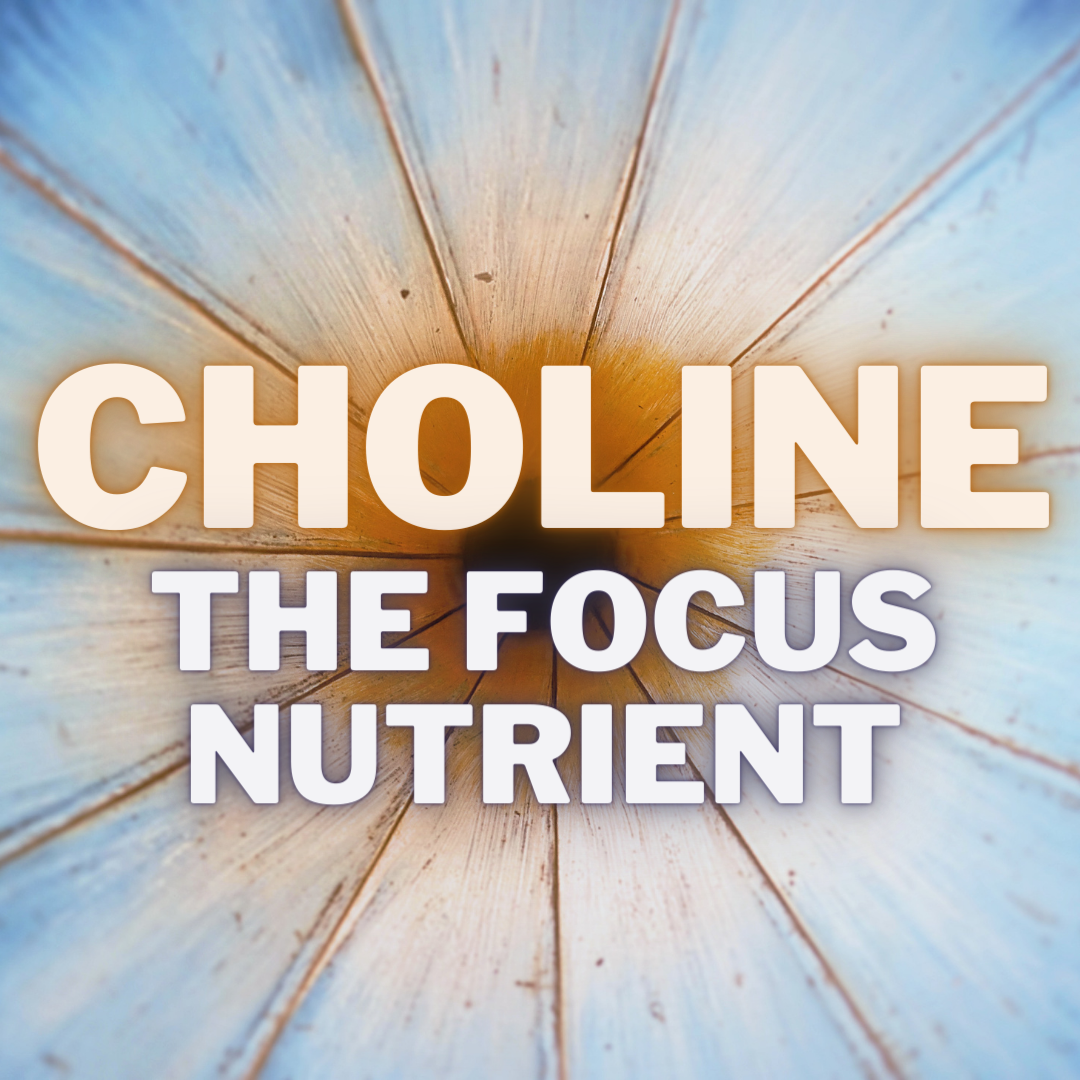
Choline: The Unsung Hero of Cognitive and Cardiovascular Health
In 1998, choline—a nutrient with profound roles in brain and body health—was finally recognized by the Institute of Medicine as essential, underscoring just how recently we’ve come to appreciate its indispensable functions. But what makes choline so crucial? Quite simply, it’s an unsung powerhouse, fueling metabolism, strengthening cell structure, and perhaps most compellingly, sharpening cognition and supporting a resilient nervous system. Its benefits cut across mental and physical health in ways we’re only beginning to fully understand.
The Cognitive Catalyst: Choline and Brain Health
At the heart of choline’s allure lies its critical function in brain health. Choline is a precursor to acetylcholine, a neurotransmitter indispensable for memory and learning. Imagine acetylcholine as a sort of bridge-builder, linking thought processes and memory pathways. The greater your brain’s supply of choline, the more robust these connections tend to be. Several studies underscore this, linking higher blood levels and intake of choline to enhanced cognition, memory retention, and processing speed—a cognitive edge that could make a difference from childhood through old age.
Beyond acetylcholine, choline also contributes to the broader architecture of brain function, impacting cell membrane structure and signaling. Nutrients like Alpha-GPC and CDP-choline are popular in performance supplements for their effectiveness in crossing the blood-brain barrier and delivering brain-boosting benefits. By enhancing attention, focus, and cognitive endurance, these choline forms not only improve the brain's immediate responsiveness but may also fortify it against age-related decline. Think of it as a kind of intellectual longevity insurance—a nutrient that protects and sharpens your mental toolkit over time.
Cardiovascular Health: Choline as an Inflammation Regulator
Choline’s benefits don’t end at the brain. Studies also point to its surprising role in cardiovascular health. Diets rich in choline are often associated with lower levels of inflammatory markers, including C-reactive protein, homocysteine, interleukin-6, and tumor necrosis factor. Each of these markers, when elevated, signals potential trouble within the cardiovascular system, hinting at inflammation or even impending cardiovascular disease.
By modulating these markers, choline acts like a calming agent, bringing inflammation into check. This may not only lower the risk of heart disease but also contribute to a healthier metabolic profile. Picture choline as a conductor, keeping the inflammatory orchestra in harmony, ensuring that no section plays too loudly or disrupts the body's rhythm. This regulatory effect highlights choline's unique versatility—it’s not just a cognitive nutrient but a systemic one, supporting health on multiple levels.
The Choline Gap: Why Most Diets Fall Short
Despite its importance, choline intake often falls below recommended levels. Organ meats stand as choline giants, but they’re not common in most diets. Eggs, particularly the yolks, provide a more accessible source, followed closely by salmon. Yet, even with these sources, average diets rarely deliver enough. In fact, dietary surveys suggest that a significant portion of the population may not meet the necessary intake to unlock choline’s full health benefits.
Given choline’s wide-ranging advantages, the gap in consumption becomes all the more concerning. Imagine an orchestra missing key players; the performance loses depth and power. Likewise, without adequate choline, the body may struggle to perform essential functions optimally, potentially compromising cognitive sharpness, heart health, and more.
Final Thoughts: Why Choline Matters for Lifelong Health and Performance
In a world where every edge matters—whether for cognitive agility, heart health, or simply aging gracefully—choline emerges as a cornerstone nutrient. It provides brain-boosting benefits, supports heart health, and maintains a solid cellular structure, enabling us to perform at our best. And while it’s easy to overlook, adding choline through diet or supplementation could be the catalyst to lifelong health and performance.
So, next time you reach for your morning eggs or consider a choline supplement, remember: you’re not just feeding your body; you’re investing in your future brainpower and heart resilience. And that’s the kind of return no one should overlook.
These statements have not been evaluated by the Food and Drug Administration. This product is not intended to diagnose, treat, cure or prevent any disease. This article is for informational purposes only and is not a substitute for professional medical advice. Always consult your healthcare provider regarding any health concerns or before starting new supplements.